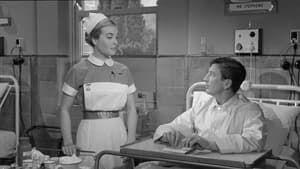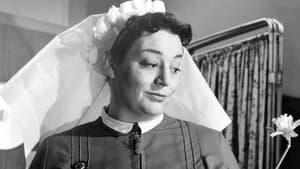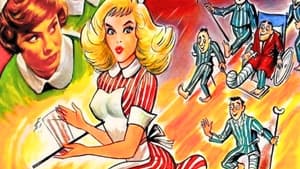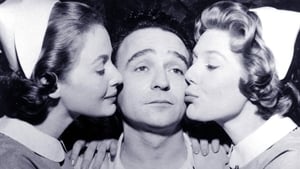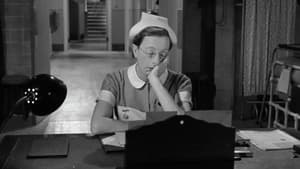Contact: info@alwanfilm.com
Video Sources 0 Views
- Watch trailer
- Carry On Nurse 1959 Colorized

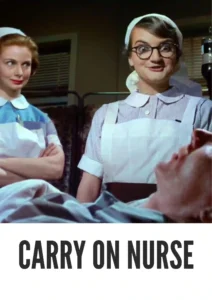
Carry On Nurse 1959 Colorized
Synopsis
Table of Contents
ToggleCarry On Nurse 1959 Colorized Review: A Hilarious Journey Through the Hospital

Introduction
In the realm of British comedy, few film series have achieved the enduring popularity and charm of the Carry On franchise. Among its many entries, Carry On Nurse (1959) stands out as a delightful blend of humor, wit, and endearing characters, making it a timeless classic. Directed by Gerald Thomas and featuring a stellar ensemble cast, this film captures the antics of hospital life with a comedic twist that resonates with audiences even today. This article will explore the film’s comedic brilliance, character dynamics, and its significance within the broader context of British cinema.
Check The Full Colorized Movies List
Check Our Colorized Movies Trailer Channel
Understanding Carry On Nurse 1959 Colorized: Director, Cast, and Genre
Director’s Vision
Gerald Thomas, who directed Carry On Nurse (1959), played a pivotal role in shaping the Carry On franchise. His vision was to create a film that not only entertained but also poked fun at the absurdities of everyday life, particularly within the British National Health Service. Thomas had a knack for balancing slapstick humor with clever wordplay, a hallmark of the Carry On series. His direction brought together the comedic talents of the cast, resulting in a film that remains a favorite among fans of British comedy.
The Iconic Performance of Actors
The ensemble cast of Carry On Nurse is one of its greatest strengths. Starring alongside the legendary Sid James are a host of British comedy veterans, including:
- Barbara Windsor, whose portrayal of the flirtatious nurse is both charming and hilarious. Windsor’s bubbly personality shines through, bringing a delightful energy to the film.
- Kenneth Williams, known for his distinctive voice and comedic timing, plays the role of the pompous Dr. Kilmore. His interactions with the other characters provide some of the film’s most memorable moments.
- Joan Sims, another staple of the Carry On series, brings her own brand of humor to the role of Nurse. Her comedic chops add depth to the ensemble, making the hospital setting feel vibrant and lively.
- Hattie Jacques, who plays the matron, provides a no-nonsense presence that contrasts beautifully with the more carefree antics of the other characters.
Together, this talented cast delivers performances that are as entertaining as they are memorable, contributing to the film’s status as a classic in British comedy.
Exploring the Genre
Carry On Nurse (1959) fits firmly within the comedy genre, specifically the subgenre of farce. The film is characterized by its use of slapstick humor, witty dialogue, and a series of comical misunderstandings that drive the plot. The Carry On films often rely on innuendo, double entendres, and playful banter, making them unique in their approach to humor. This particular entry in the franchise effectively satirizes the hospital setting, taking a lighthearted look at the medical profession and the often absurd situations that arise within it.
Exploring the World of Carry On Nurse 1959 Colorized: Plot and Characters
Detailed Synopsis
Carry On Nurse follows the misadventures of a group of nurses and doctors at the fictional Haven Hospital. The plot centers around a new patient, Mr. Grimsdale (played by Kenneth Williams), who is brought in for a routine operation. However, chaos ensues as the staff navigate their own personal quirks and eccentricities.
The film opens with the introduction of the hospital staff, showcasing the various personalities that make up the team. From the bumbling doctors to the flirtatious nurses, each character adds to the comedic fabric of the story. As Mr. Grimsdale’s operation approaches, a series of misunderstandings and mishaps unfold, leading to a cascade of humorous events.
Key moments in the film include a chaotic examination, a series of romantic entanglements, and a hilarious scene involving an inflatable patient. The ensemble cast’s interactions are filled with witty dialogue and physical comedy, keeping the audience engaged and entertained throughout.
The Complex Protagonist and Memorable Supporting Characters
While the film features a range of characters, Barbara Windsor’s Nurse Patricia and Kenneth Williams’ Dr. Kilmore emerge as the focal points. Windsor’s character is bubbly and flirtatious, often finding herself in humorous situations due to her charm and confidence. Her interactions with the other characters highlight the comedic dynamics at play within the hospital.
Dr. Kilmore, played by Williams, serves as both a source of comedy and conflict. His pomposity often leads to comical misunderstandings, especially in his interactions with the nurses. The chemistry between Windsor and Williams adds depth to the film, showcasing how contrasting personalities can create comedic tension.
The supporting characters, including Hattie Jacques’ Matron and Joan Sims’ Nurse, contribute to the film’s charm. Each character is well-defined, allowing the audience to become invested in their antics and the unfolding chaos.
The Art of Farcical Comedy
Understanding the Elements
Farcical comedy relies on exaggerated characters, improbable situations, and absurdity to create humor. In Carry On Nurse, the film’s setting—a busy hospital—serves as the perfect backdrop for the farcical elements to unfold. The characters are often caught in increasingly ridiculous scenarios, leading to laugh-out-loud moments that keep the audience engaged.
The physical comedy in Carry On Nurse is particularly noteworthy. The use of slapstick humor, such as pratfalls and misunderstandings, contributes to the film’s overall comedic tone. The actors’ impeccable timing and delivery enhance these moments, resulting in a film that is both entertaining and memorable.
The Development of Farcical Comedy in Cinema
Farcical comedy has a long history in cinema, with roots in theatrical traditions such as commedia dell’arte and vaudeville. The Carry On series is a continuation of this tradition, bringing the genre to a new generation of audiences. With its focus on humor derived from everyday situations, the Carry On films have become a beloved part of British cinematic history.
Carry On Nurse 1959: A Classic in the Carry On Nurse 1959 Colorized
The Significance of Carry On Nurse
Carry On Nurse (1959) holds a special place in the Carry On franchise as one of its earliest entries. Released during a time when British cinema was embracing comedy, this film helped establish the Carry On brand and set the tone for future installments. The combination of clever writing, memorable characters, and slapstick humor made it a hit with audiences, and it remains a favorite among fans of British comedy.
The film’s success also paved the way for other entries in the Carry On series, many of which would follow similar themes and comedic styles. Carry On Nurse effectively demonstrates how humor can be found in even the most mundane situations, a hallmark of the series.
The Legacy of the Carry On Series
Impact on British Comedy
The Carry On franchise has had a lasting impact on British comedy, influencing generations of comedians and filmmakers. Its unique blend of humor, including innuendo and physical comedy, has inspired countless works in the genre. The series also paved the way for other British comedies, showcasing the country’s talent for producing lighthearted and entertaining films.
Many of the actors involved in the Carry On series became household names, further solidifying its legacy in the world of comedy. The film’s success opened doors for future comedic endeavors, both in film and television.
Themes Explored in Carry On Nurse 1959 Colorized
Humor, Gender Roles, and Professionalism
Carry On Nurse (1959) explores various themes, including humor derived from gender roles and professionalism within the medical field. The film highlights the dynamics between male doctors and female nurses, often playing on stereotypes to create comedic situations. The nurses are portrayed as competent and confident, challenging the traditional notions of femininity and subservience prevalent at the time.
The film also satirizes the medical profession, presenting a humorous view of hospital life that contrasts with the seriousness often associated with healthcare. By exaggerating the quirks and eccentricities of hospital staff, Carry On Nurse invites audiences to laugh at the absurdities of everyday life.
Reception and Controversy Surrounding Carry On Nurse 1959 Colorized
Initial Reviews and Audience Reactions
Upon its release, Carry On Nurse (1959) received generally positive reviews from audiences and critics alike. Viewers praised its lighthearted humor, memorable characters, and engaging plot. The film’s clever dialogue and physical comedy resonated with audiences, contributing to its popularity at the box office.
However, the film was not without controversy. Some critics raised concerns about the portrayal of nurses and the medical profession, arguing that the humor may perpetuate stereotypes. Despite these critiques, Carry On Nurse remains a beloved classic, celebrated for its comedic brilliance and enduring charm.
Where to Watch Carry On Nurse 1959 Colorized Online
For those interested in experiencing Carry On Nurse (1959), several streaming platforms offer access to the film. Services such as Amazon Prime Video and BritBox provide options for viewing this classic British comedy online. Additionally, DVD and Blu-ray editions of the film, featuring special features and behind-the-scenes content, are available for purchase.
FAQs About Carry On Nurse 1959 Colorized
Q: What is the significance of Carry On Nurse (1959) in the Carry On series?
A: Carry On Nurse (1959) is one of the earliest entries in the Carry On franchise, helping to establish the series’ unique blend of humor and character-driven storytelling.
Q: Who directed Carry On Nurse (1959)?
A: Carry On Nurse was directed by Gerald Thomas, known for his work on multiple entries in the Carry On series.
Q: What themes are explored in Carry On Nurse (1959)?
A: The film explores themes of humor, gender roles, and professionalism within the medical field, often using satire to comment on the dynamics between male doctors and female nurses.
Q: How has Carry On Nurse (1959) influenced British comedy?
A: The film has had a lasting impact on British comedy, inspiring future filmmakers and comedians with its unique blend of humor, clever writing, and memorable characters.
Conclusion
Carry On Nurse (1959) remains a cherished film within the Carry On franchise, offering audiences a delightful glimpse into the humorous world of hospital life. With its talented cast, clever writing, and engaging plot, the film has secured its place in the annals of British comedy. Whether enjoyed for its nostalgic charm or appreciated as a pioneering work in the genre, Carry On Nurse continues to captivate audiences, demonstrating the timeless appeal of humor in everyday situations. As viewers revisit this classic, they are reminded of the joy that can be found in laughter, even in the most unexpected places.
